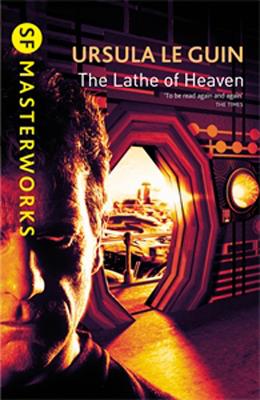Reviewed by nannah on
Content warnings:
- ableism & eugenics (in-book)
- some uncomfortable gay (mlm) stereotypes (probably in-book only, knowing Le Guin)
Representation:
- one of the three PoV characters is biracial (black)
- one of the three PoV characters is bisexual or a (closeted?) gay man
George Orr, an average man by all accounts, discovers his dreams are affecting reality and that he’s the only one who knows it’s happening. He goes to dream psychiatrist William Haber for help but soon finds himself manipulated by Haber and his desire to play god.
As always with Le Guin, the prose is gorgeous. I love the way she distinguishes her characters, both through the prose and the characters’ voices. Heather Lelache, the love interest, especially. She's described in almost a menacing way with how her brass bracelets and buckles snap and clack when she moves. It fits her character wonderfully, too. As sort of an armor plating.
Though the story ends up being a little frustrating, because George technically could have ended the story halfway through and saved everyone a whole lot of trouble, it’s also fun to understand that it’s exactly his nature that prevents him from doing it. Just like it’s Haber’s nature that ultimately makes him the antagonist of the story, even though his desire is to do good. You have to love (or at least appreciate) stories like that.
I hear there was a film made of this in the 80s ... I know what I'll be doing this coming weekend. In the meantime, on to the next Le Guin novel(la)!
(4.5)
Reading updates
- Started reading
- 7 February, 2022: Finished reading
- 7 February, 2022: Reviewed
